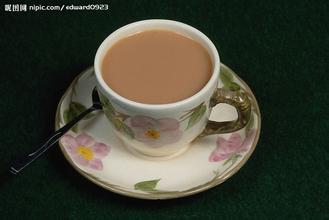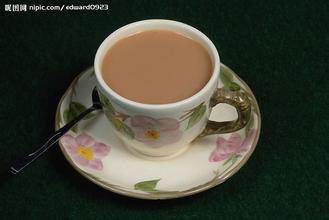The present situation of coffee flavor in Kenya introduces the growing conditions of coffee
The Kenyan government takes the coffee industry extremely seriously, and it is illegal to cut down or ring coffee trees here. Kenya's coffee buyers are world-class buyers of premium coffee, and no country grows, produces and sells coffee as consistently as Kenya. All coffee beans are first acquired by the Coffee Board of Kenya (CBK), where they are appraised, graded and then sold at weekly auctions, where they are no longer graded. The Kenya Coffee Board acts only as an agent, collecting coffee samples and distributing them to buyers so that they can determine price and quality. Nairobi auctions are held for private exporters and the Kenya Coffee Board pays growers below-market prices. The best coffee grade is bean berry coffee (PB), followed by AA++, AA+, AA, AB, etc., in that order. Fine coffee is shiny, delicious and slightly aromatic. The auction is also organized to meet the needs of the distributor. These auctions usually sell small quantities (3-6 tons each), with samples bearing the grower's logo for buyers to appreciate. After auction, exporters pack according to different flavors, different qualities and quantities required by blenders. This provides a great deal of flexibility for the deployer. Quality-conscious germans and nordics are long-term buyers of kenyan coffee.
On an international scale, the growth in Kenyan coffee production has been remarkable, with exports rising from 800,000 bags in 1969- 1970 to 2 million bags in 1985-1986. The average yield is stable at 1.6 million bags, with an average yield of about 650 kg/ha. Even before the coffee price spike, the average price of coffee in Kenya had been rising. 1993--1994 Prices are 50% higher in 2010 than they were 12 months ago. Price increases are mainly the result of increased demand.
Kenyan coffee
Kenyan coffee
Some buyers, especially Japanese ones, have complained about Kenya's coffee system. Some traders say the quality of coffee in the country has declined, pointing out that buying directly from farmers may be one way to improve quality. Either way, kenya's detailed rules and procedures are a model for all coffee-producing countries.
Kenyan coffee gained further fame with the Hollywood blockbuster Out of Africa.
In the film Merrill. Mary Streep plays Karen, a writer and coffee plantation owner. Many people probably still remember the breathtaking views and magnificent sunsets in the film, but even more memorable is Karen's dream of owning a coffee plantation in Africa.
Flavor Editor
Kenyan coffee
Kenyan coffee
Aromatic, rich, fruity, rich and perfect on the palate. Kenya coffee has a wonderful fruity flavor, with a blackberry and grapefruit flavor, and is a favorite of many coffee lovers. This coffee has an excellent medium purity, crisp and refreshing taste. Fresh flavor and best for iced coffee in summer. When tasting this coffee, if it is accompanied by fruit with acidity such as grapefruit, it will definitely give me the best coffee experience. "Less coffee, more fruit tea" is the common feeling many people have about this light roasted Kenyan coffee. In addition to the obvious and fascinating fruit acidity, Kenya coffee is mostly grown by small coffee farmers in a variety of different environments, with different climates and rainfall each year, bringing a variety of distinct and unique personalities. Take AAPlus grade "KenyaAA+Samburu" as an example. Samburu of 2001 has strong dark plum fragrance, low acidity and strong taste. Samburu newly harvested in winter of 2002 presents completely different flavor. Mulberry berry and green plum, accompanied by a little spicy flavor. After drinking, it has sweet fragrance of green tea. The acidity is slightly higher than that of the previous year, and the taste is still strong. The usual Kenyan flavors are not intense, but have fruity bright flavors, some with spices and some with red wine aromas. Kenya is just like that, so coffee fans are full of expectations and surprises!

Important Notice :
前街咖啡 FrontStreet Coffee has moved to new addredd:
FrontStreet Coffee Address: 315,Donghua East Road,GuangZhou
Tel:020 38364473
- Prev

Arabica subspecies of Ethiopian coffee
Even the official research unit of Ethiopia does not know how many Arabica subspecies there are in Ethiopia. The coffee cooperatives in this mountain are certainly different from those planted in another mountain, and even small farmers in the same region grow different varieties of coffee. It has been estimated that there are at least 2000 varieties of Ethiopian coffee and even more than 4500 kinds of coffee. Compared to the southern neighbor Ken
- Next

Tanzania Coffee Bean Varieties and Production Methods
Coffee is one of Tanzania's main cash crops, ranking fourth after cotton, tobacco and cashew nuts among Tanzania's export crops, mainly exported to Italy, Japan and the United States. Coffee exports occupy an important position in Tanzania's national economy. Tanzania's main coffee-producing area is located at the foot of Mount Kilimanjaro, which has rich volcanic soil. Coffee trees planted here include
Related
- Does Rose Summer choose Blue, Green or Red? Detailed explanation of Rose Summer Coffee plots and Classification in Panamanian Jade Manor
- What is the difference between the origin, producing area, processing plant, cooperative and manor of coffee beans?
- How fine does the espresso powder fit? how to grind the espresso?
- Sca coffee roasting degree color card coffee roasting degree 8 roasting color values what do you mean?
- The practice of lattes: how to make lattes at home
- Introduction to Indonesian Fine Coffee beans-- Java Coffee producing area of Indonesian Arabica Coffee
- How much will the flavor of light and medium roasted rose summer be expressed? What baking level is rose summer suitable for?
- Introduction to the characteristics of washing, sun-drying or wet-planing coffee commonly used in Mantenin, Indonesia
- Price characteristics of Arabica Coffee Bean Starbucks introduction to Manning Coffee Bean Taste producing area Variety Manor
- What is the authentic Yega flavor? What are the flavor characteristics of the really excellent Yejasuffi coffee beans?

